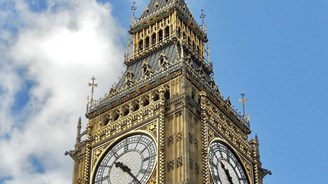Will we see even more changes in tax rates and allowances in the Budget?

The Chancellor surprised many of us by using the Autumn Statement to increase the personal allowance from April 2013 even more than was originally planned. The £9,440 allowance is well on the way to the £10,000 target of the Coalition government.
The introduction of the increased Annual investment allowance (AIA) from £25,000 to £250,000 was also a surprise.
He is however still under pressure to change things further and give tax savings to individuals. There is an eleventh hour campaign to change the prospective abolition of the higher personal allowance, the so called granny tax. There are now close to 90,000 signature to an e petition (see epetitions.direct.gov.uk). If it gets at least 100,000 signatures, it will be considered for debate in the House of Commons.
In fact the main group affected by this are not grannies but men approaching 65. They tend to have income above the personal allowance but many millions will not have income above £26,100 which is the point at which the higher personal allowance is abated.
There have been indications (including from the Tory Party chairman, Grant Shapps) that the Chancellor could announce a plan to increase the personal allowance above £10,000. This may placate the older generation and well as grabbing the limelight from the Labour proposal to reintroduce the 10p starting rate for earned income.
But what of business? A KPMG survey reveals that the Chancellor's promise to make Britain the world's most tax-competitive nation, may well be achieved. Interviews with 57 senior executives at both British-based and foreign companies were conducted and 72% of the executives named Britain as among the most tax-competitive countries, up from 27% from last year. The survey also shows that the number of companies considering pulling out of the UK economy is the lowest since 2007.
Mr Osborne said: 'We made a commitment to create the most competitive corporate tax system in the G20 and, within just two and half years, this report shows that is what the world's leading companies now think we have remarkable turnaround.'
The trouble is this is primarily a beneficial effect on big business, and there continues to be pressure on the Chancellor to address the needs the needs of SMEs.
Hopefully we may see further measures to help SMEs rather than having to accept that the increase in the AIA will be the sole benefit to the SME business.
There two things that we can be fairly sure about on Budget day. The first is that George Osborne will refer to financial troubles under the last Labour government and state that there were due to the Labour government's incompetence, whereas the current financial troubles are entirely due to global economic problems.
Mr Balls will no doubt respond that that the financial troubles under the last Labour government were due to global economic problems, whereas the current financial troubles are due to the Coalition's incompetence.
Spot the difference.




